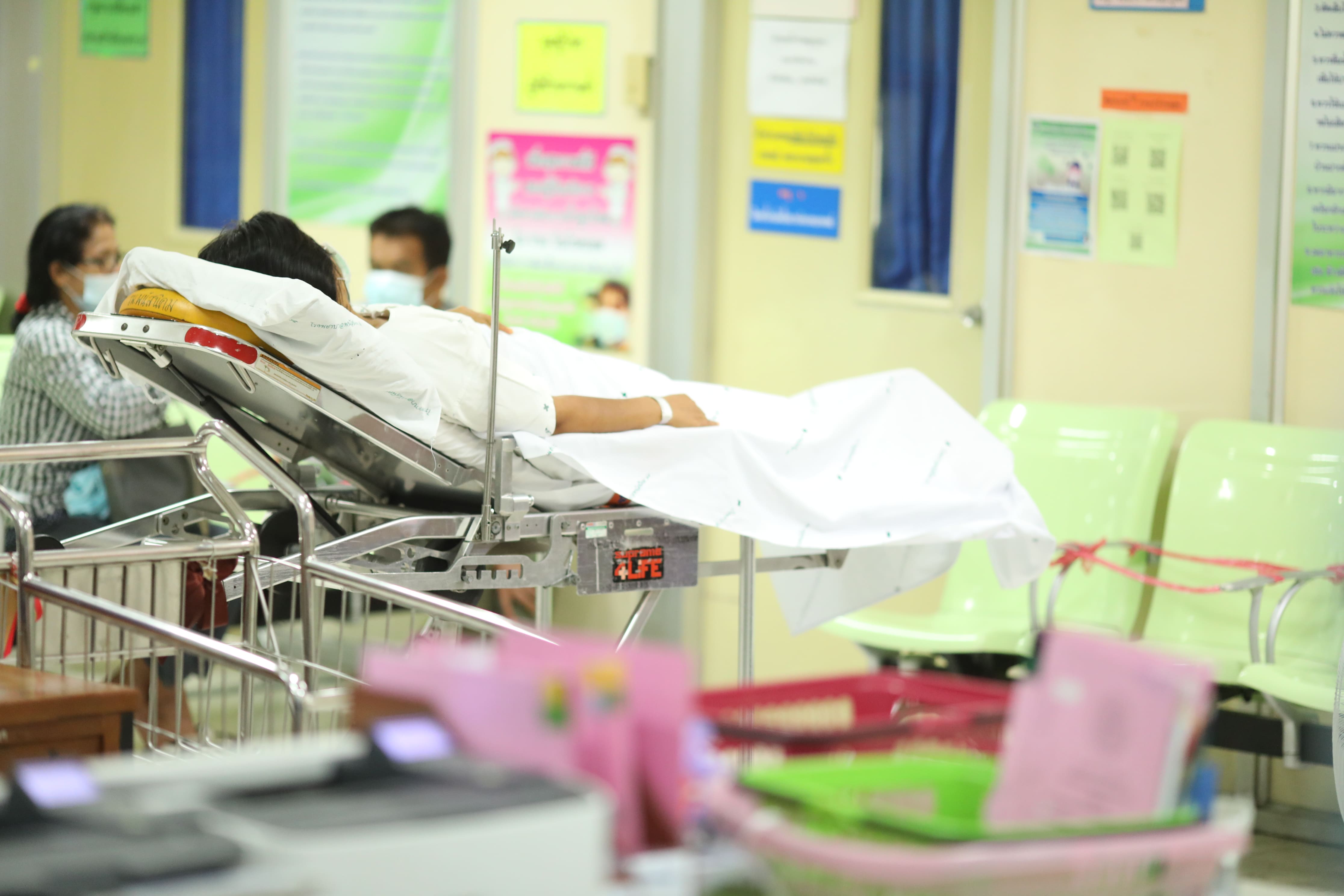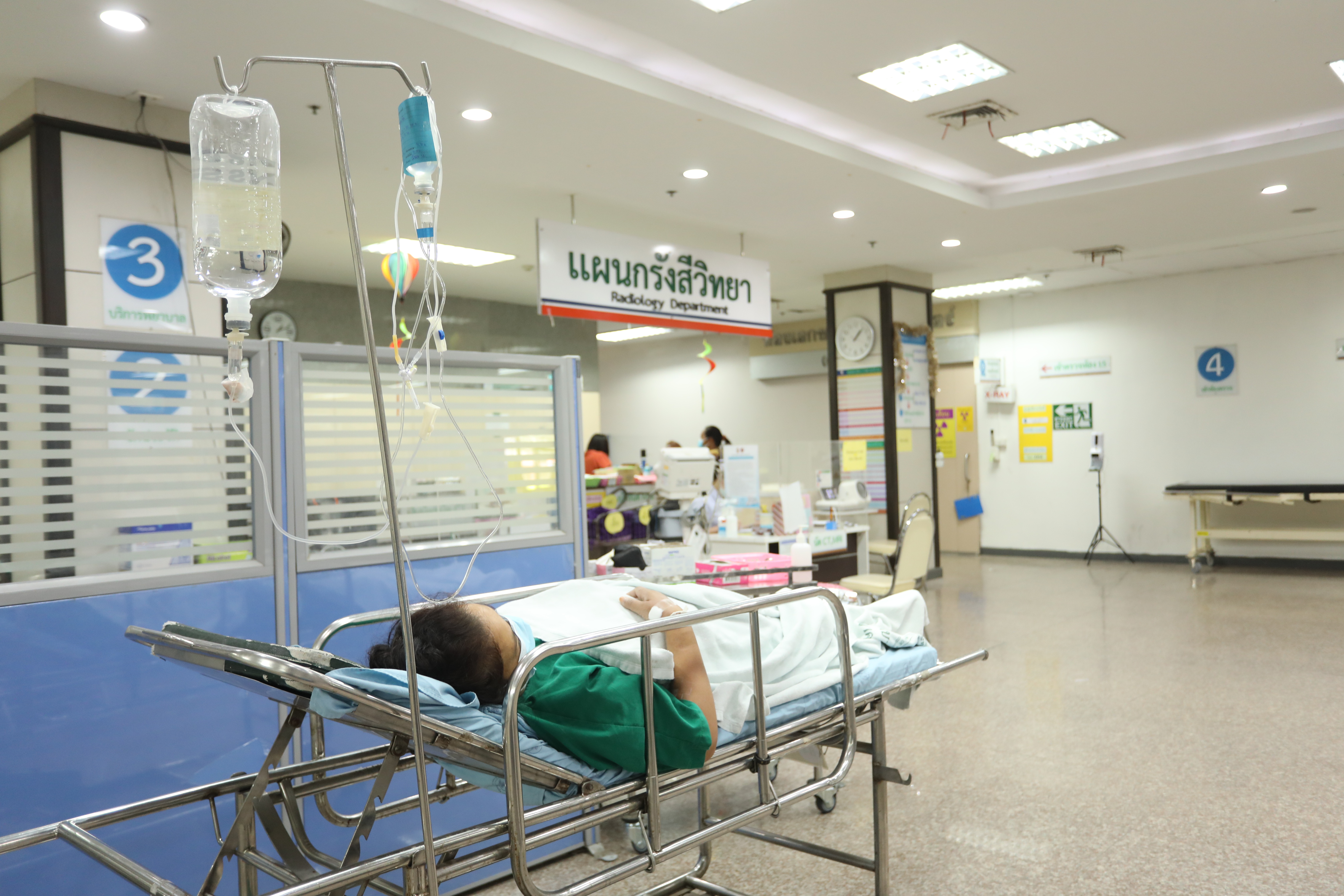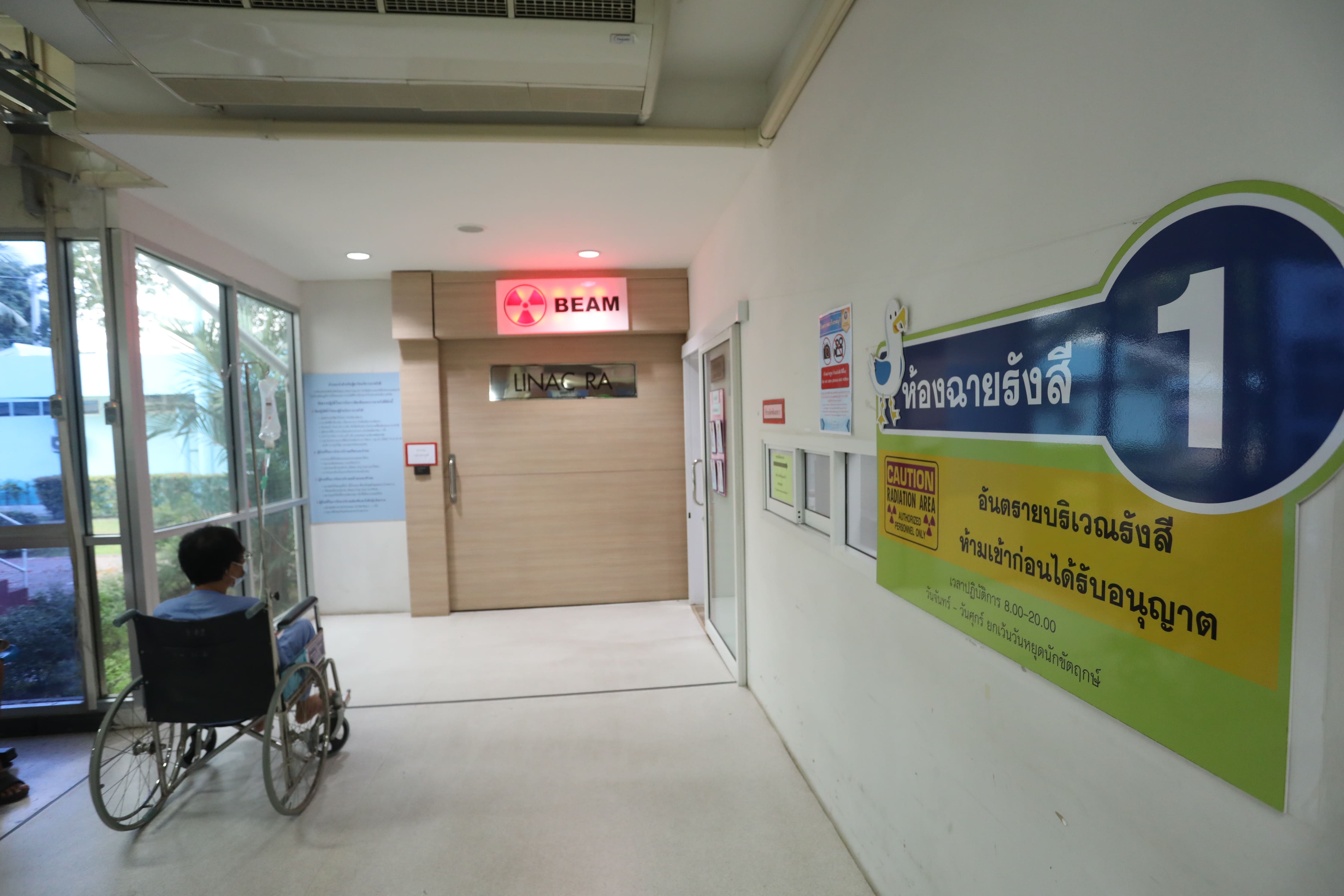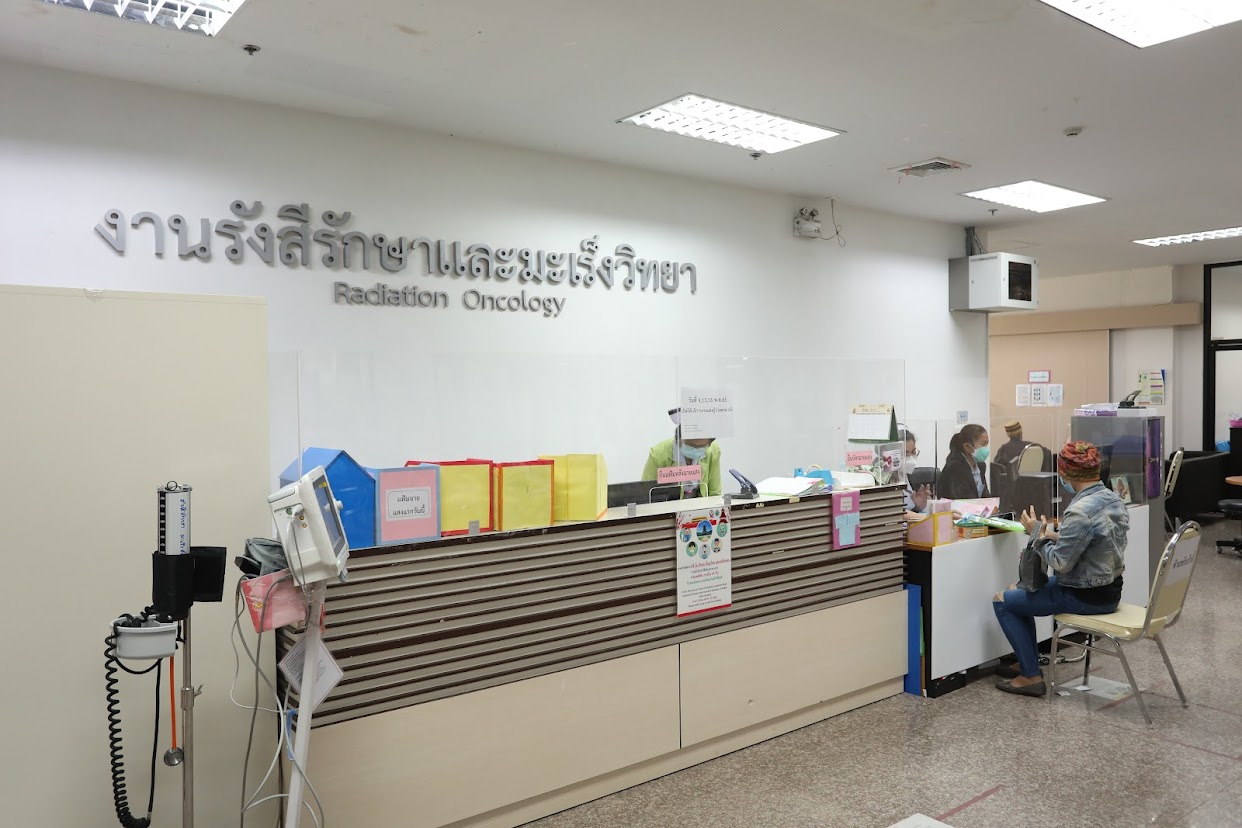
- Home
- DescriptionNews
Access to timely treatments through ‘Cancer Everywhere’

Access to timely treatments through ‘Cancer Everywhere’
‘Cancer Everywhere’ improves patients' access to treatment and medication regardless of geography and socioeconomic status.
Patchar, a 54-year-old patient living with cervical cancer, is one of the Universal Coverage Scheme (UCS) beneficiaries who are treated under the “Cancer Everywhere” program.
Launched in January 2021, the program aims to enhance patients’ access to cancer treatment and medications regardless of their whereabouts.

They can request doctor appointments and therapies from any hospital partnering with the National Health Security Office (NHSO), which oversees the UCS.
Previously, all cancer patients could get the treatments only at the hospitals with their names registered.
If they want to switch hospitals, they must obtain the physicians’ approval for inter-hospital transfer.
This inconvenience bars many patients from accessing affordable care on time, especially those migrating outside their provinces.
They must wait for months to get inter-hospital transfer approval or spend time and money to travel to hospitals far from their places.
These challenges were eliminated in the case of Patchar.
Timely inter-hospital transfers
In early 2022, Patchar noticed the warning signs of cervical cancer.
She discovered unusual bloody discharge and felt pain in the pelvic region, prompting her to request a screening test from a private-run Mith Maitree Hospital in Pak Kred district, Nonthaburi Province.
Two weeks after the test, she was informed that she had cancer cells in her cervix.

The hospital staff transfered her to a more-advanced Phra Nang Gao Hospital, where she received another test that confirmed cervical cancer in the third stage.
She was given the choice to get chemotherapy at National Cancer Institute or Rajavithi Hospital in Bangkok, and she chose the first.
This series of inter-hospital transfers proceeded without Patchar asking for transfer documents from doctors.
She could get on-time treatment when the transfers were quick and required less paperwork.

The most cost incurred during the treatment was covered by the UCS. Patchar paid little — 10 baht per a single chemotherapy session, and 135 baht for a blood test or a kidney function test.
To date, she has received chemotherapy for six months and likely recover within this year.
Switch to the public health system
Around 140,000 new cancer patients emerge in Thailand each year. The most common types of cancer found among the Thai population are liver, gallbladder, lung, breast, colon, and cervical cancer

Dr Suphakorn Pitakkankul, a cancer therapist at National Cancer Institute, revealed that his health unit records over two million visits by new and existing cancer patients each year.
Since the launch of the Cancer Everywhere program, he observed the number of cancer patients covered by the UCS slightly increase.
This is obvious in Bangkok where many immigrants living with cancer must rely on private hospitals as they couldn’t return to the state-run hospitals they registered within their home provinces.
Cancer Everywhere seems to encourage them to shift to the public health system due to the new setting condition.
The program is initiated under the collaboration of the NHSO and the Ministry of Public Health which set up the strategies to prevent and control cancer.
The prevention measure is translated into many health programs, including the distribution of human papillomavirus vaccines (HPV) to students across the country.
The vaccine protects against the virus that causes the risk of cervical cancer.
The screening test for multi-types of cancers, including cervical and colon cancer, are included in the UCS benefits package.
These tests are funded by the scheme, meaning patients don’t need to pay for the services.
New health benefits
The NHSO secretary-general Dr Jadej Thammatacharee revealed that the NHSO is considering introducing high-cost targeted drug therapy into the UCS.

The therapy uses medicines directed at proteins in breast cancer cells and blocks their growth.
The drugs are given to patients with stage-four breast cancer — in which cancer cells have metastasized and spread to distant parts of the body, including the bones, lungs, and liver.
However, more studies are needed to assert the therapy’s cost-effectiveness when provided to patients free of charge.
Dr Jadej believes that bringing the therapy into this scheme is possible because the NHSO has implemented a system of drug price negotiation which can reduce the cost of the expensive drug significantly.
“Moreover, we have managed the UCS fund effectively and can save cost for spending on new health benefits,” he said.

